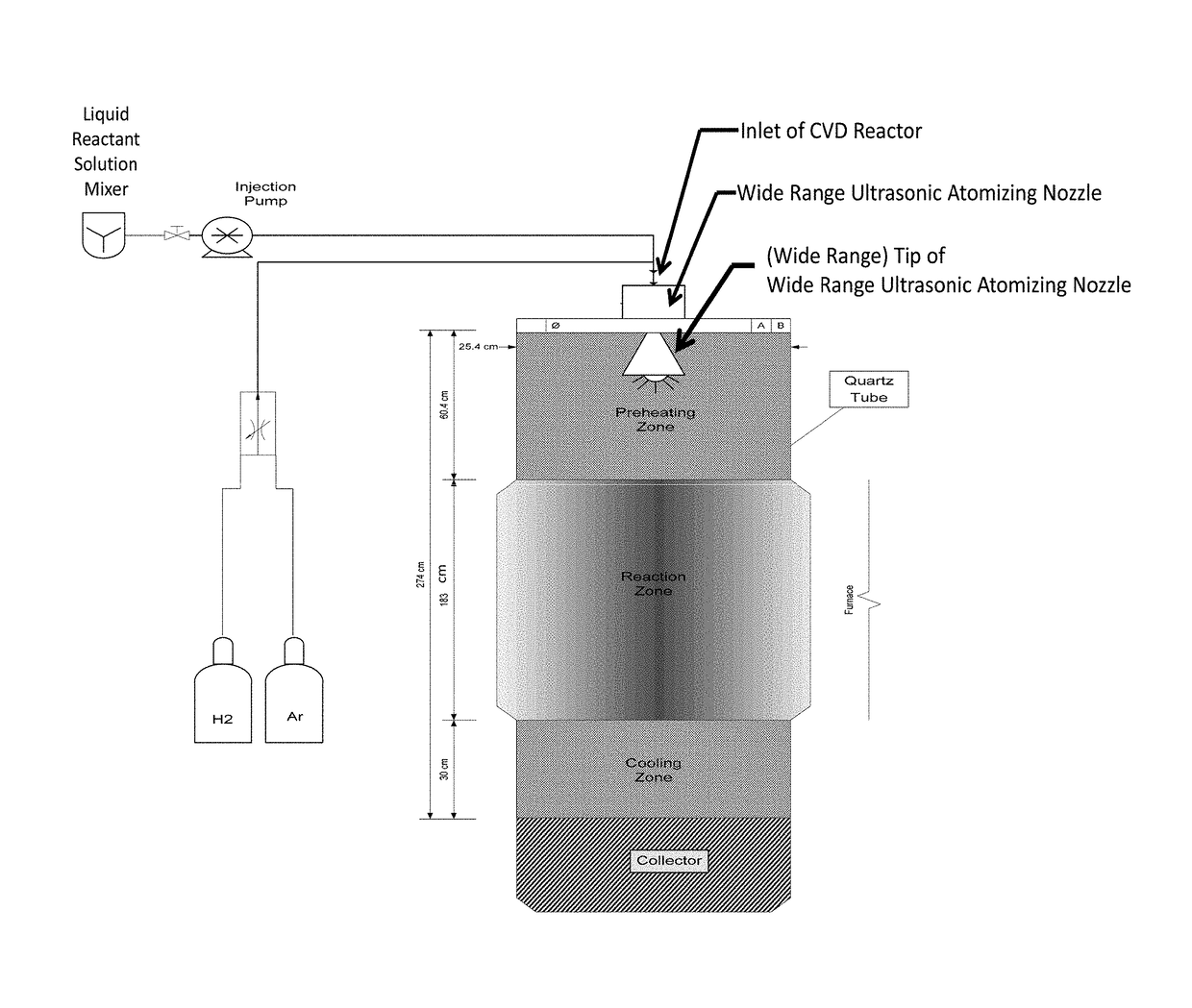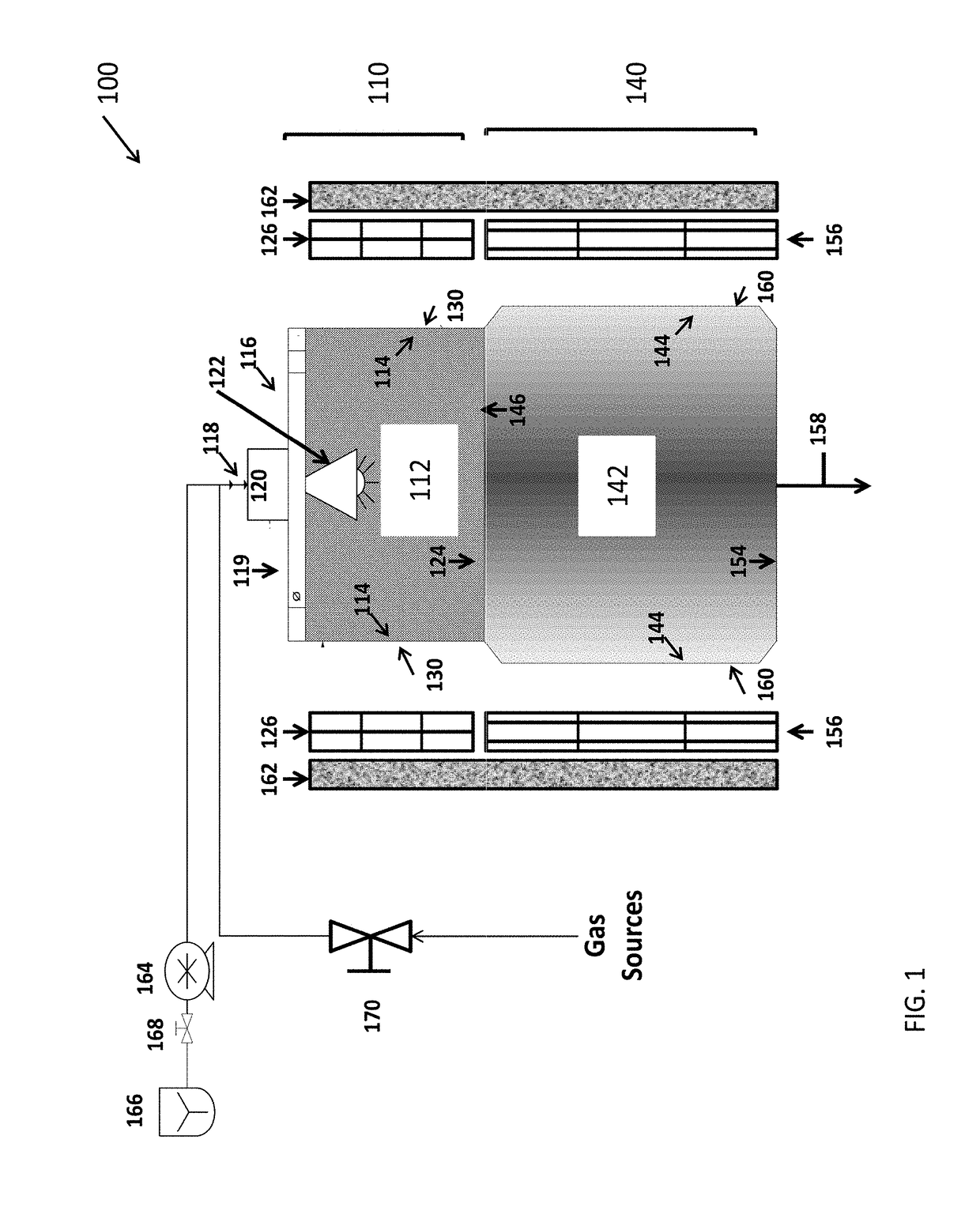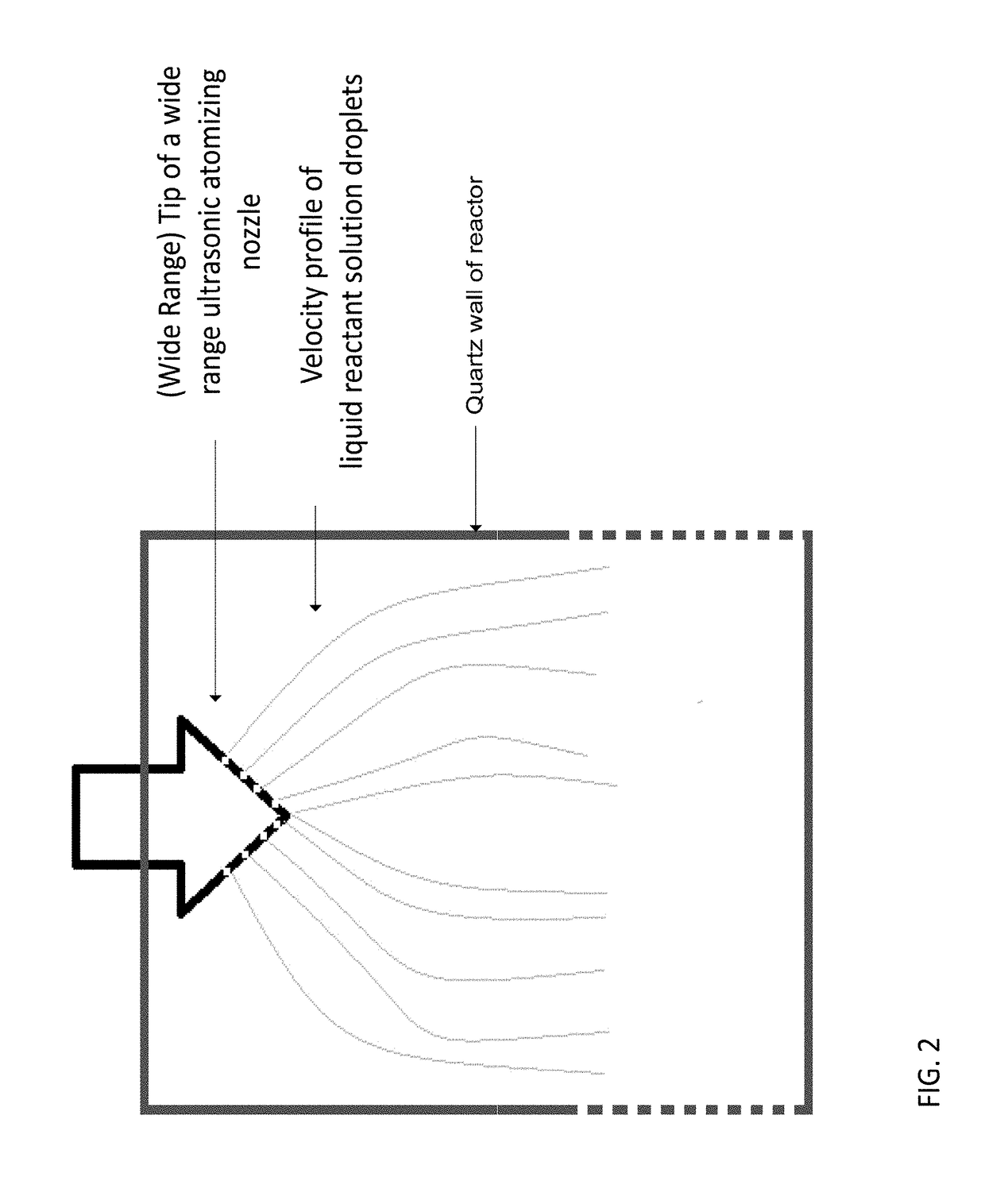Method for forming aluminum oxide/carbon nanotubes by ultrasonic atomization and chemical vapor deposition
a technology of aluminum oxide and carbon nanotubes, which is applied in the field of chemical vapor deposition reactors for synthesizing metal oxide impregnated carbon nanotubes, can solve the problems of ineffective control of the size and shape of inability to reduce metal salts in hours or days, and difficulty in implementing methods for impregnation of carbon nanotubes with metal or metal oxide nanoparticles, etc., to achieve uniform velocity
- Summary
- Abstract
- Description
- Claims
- Application Information
AI Technical Summary
Benefits of technology
Problems solved by technology
Method used
Image
Examples
example 1
Materials and Methods
1. Materials
[0079]p-Xylene (C8H10, 96-99%), ferrocene ((C5H5)2Fe, 96-99%), and aluminum isopropoxide (C9H21AlO3, 98-99%) were purchased from Sigma-Aldrich Co. LLC., Honeywell Riedel-de Haen International Inc., and Acros Organics, USA, respectively, and were used without further treatment. A wide range ultrasonic atomizing nozzle with an operating frequency of 20 kHz was bought from Sonaer Inc., USA.
2. Method of Synthesizing Aluminum Oxide Impregnated Multi-Walled Carbon Nanotubes
[0080]FIG. 4 shows the vertical chemical vapor deposition (CVD) reactor used to synthesize aluminum oxide impregnated multi-walled carbon nanotubes. An electric furnace placed about the reaction zone of the reactor was used to raise the temperature of the reaction zone to a desired reaction temperature of 750-900° C. Argon gas was used as a carrier gas and hydrogen gas was used as a support gas. Both gases, as well as a liquid reactant solution, were introduced into the preheating zone o...
example 2
Characterization of the Synthesized Aluminum Oxide Impregnated Multi-Walled Carbon Nanotubes
[0084]The synthesized aluminum oxide impregnated multi-walled carbon nanotubes were characterized and compared with pure multi-walled carbon nanotubes by using scanning electron microscopy (SEM, TESCAN MIRA 3 FEG-SEM), transmission electron microscopy (TEM, field emission electron microscope JEM-2100F), energy-dispersive X-ray spectroscopy (EDS), the Brunauer-Emmett-Teller (BET) method to determine the surface areas (Quantachrome, Autosorb IQM0000-4), and X-ray diffraction (XRD) (Desktop X-ray Diffractometer, Miniflex 11).
[0085]Dispersion of Al2O3 on the surface of the multi-walled carbon nanotubes could be varied by changing the reaction parameters that affected the impregnation process. Comparing FIG. 6, which is an SEM image of the aluminum oxide impregnated multi-walled carbon nanotubes, with FIG. 5, which is an SEM image of pure multi-walled carbon nanotubes, the aluminum oxide impregnat...
PUM
| Property | Measurement | Unit |
|---|---|---|
| temperature | aaaaa | aaaaa |
| droplet size | aaaaa | aaaaa |
| droplet size | aaaaa | aaaaa |
Abstract
Description
Claims
Application Information
 Login to View More
Login to View More - R&D
- Intellectual Property
- Life Sciences
- Materials
- Tech Scout
- Unparalleled Data Quality
- Higher Quality Content
- 60% Fewer Hallucinations
Browse by: Latest US Patents, China's latest patents, Technical Efficacy Thesaurus, Application Domain, Technology Topic, Popular Technical Reports.
© 2025 PatSnap. All rights reserved.Legal|Privacy policy|Modern Slavery Act Transparency Statement|Sitemap|About US| Contact US: help@patsnap.com



